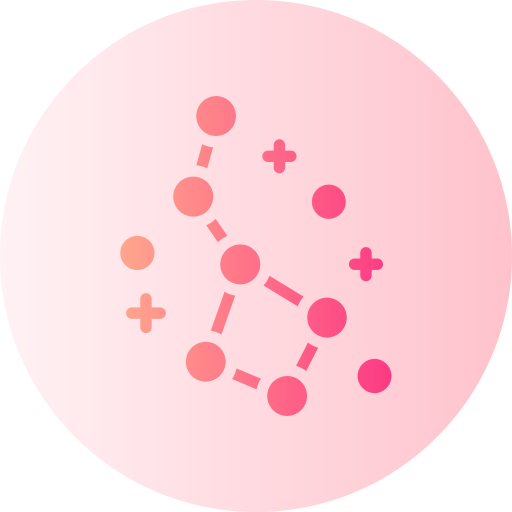Coomb Test Price in Dubai Aed 450| Coomb Test at Home | Coomb Blood Testing Near Me
Coombs Test: Purpose, Range, and Symptoms
Purpose of the Coombs Test
The Coombs test, also known as the antiglobulin test, is a blood test used to detect antibodies that may cause the immune system to attack and destroy red blood cells. There are two main types of Coombs tests: the direct Coombs test and the indirect Coombs test.
-
Direct Coombs Test:
- Purpose: To detect antibodies or complement proteins attached to the surface of red blood cells. This is often used to diagnose conditions like autoimmune hemolytic anemia, hemolytic disease of the newborn (HDN), and reactions to blood transfusions.
-
Indirect Coombs Test:
- Purpose: To detect antibodies present in the serum (the liquid part of blood) that could potentially bind to red blood cells. This test is commonly used in prenatal testing of pregnant women and before blood transfusions to ensure compatibility.
Range of the Coombs Test
The results of the Coombs test are typically reported as positive or negative.
-
Direct Coombs Test:
- Negative Result: No antibodies or complement proteins are attached to the red blood cells.
- Positive Result: Antibodies or complement proteins are attached to the red blood cells, indicating conditions like autoimmune hemolytic anemia, hemolytic disease of the newborn, or a transfusion reaction.
-
Indirect Coombs Test:
- Negative Result: No antibodies against red blood cells are found in the serum.
- Positive Result: Antibodies against red blood cells are present in the serum, suggesting potential incompatibility in blood transfusions or issues during pregnancy.
Symptoms Indicating the Need for a Coombs Test
Symptoms that may prompt a direct Coombs test include:
- Anemia Symptoms: Fatigue, weakness, pallor, and shortness of breath.
- Jaundice: Yellowing of the skin and eyes.
- Dark Urine: Indicates hemolysis (destruction of red blood cells).
- Splenomegaly: Enlarged spleen.
- Recent Blood Transfusion Reaction: Fever, chills, back pain, and dark urine after a blood transfusion.
- Newborn Concerns: Jaundice or anemia in a newborn, suggesting hemolytic disease of the newborn.
Symptoms that may prompt an indirect Coombs test include:
- Pregnancy Monitoring: Routine prenatal screening to detect Rh incompatibility between mother and fetus.
- Pre-transfusion Testing: Ensuring compatibility between donor and recipient blood to prevent transfusion reactions.
- Hemolytic Anemia Diagnosis: Unexplained anemia where an autoimmune cause is suspected.
The Coombs test is a crucial diagnostic tool in identifying antibodies that may cause immune-mediated destruction of red blood cells. By detecting these antibodies, healthcare providers can diagnose and manage conditions such as autoimmune hemolytic anemia, hemolytic disease of the newborn, and transfusion reactions, ensuring appropriate treatment and care.
FAQ Coomb Test
1. What is the Coombs test?
The Coombs test, also known as the antiglobulin test, is a blood test used to detect antibodies that can bind to the surface of red blood cells, leading to their destruction. There are two types: direct and indirect.
2. What is the difference between the direct and indirect Coombs tests?
- Direct Coombs Test: Detects antibodies or complement proteins attached directly to the red blood cell surface.
- Indirect Coombs Test: Detects antibodies present in the serum that could potentially bind to red blood cells.
3. Why is the Coombs test performed?
The test is performed to diagnose conditions like autoimmune hemolytic anemia, hemolytic disease of the newborn, and transfusion reactions. It is also used in prenatal screening and pre-transfusion compatibility testing.
4. How is the Coombs test conducted?
A blood sample is taken from the patient. For the direct test, red blood cells are examined for attached antibodies. For the indirect test, serum is tested for free-floating antibodies.
5. What do the results of a Coombs test mean?
- Negative Result: No antibodies or complement proteins detected.
- Positive Result: Presence of antibodies or complement proteins, indicating conditions such as autoimmune hemolytic anemia, hemolytic disease of the newborn, or potential transfusion reactions.
6. What are the symptoms that might lead a doctor to order a Coombs test?
Symptoms include anemia (fatigue, weakness, pallor), jaundice, dark urine, an enlarged spleen, and reactions after a blood transfusion. In newborns, jaundice or anemia may prompt the test.
7. Is there any preparation needed for a Coombs test?
No special preparation is needed. It involves a routine blood draw, which is a simple and quick procedure.
8. Are there any risks associated with the Coombs test?
The risks are minimal and similar to any blood draw, including slight pain or bruising at the puncture site and, in rare cases, infection.
9. How long does it take to get the results of a Coombs test?
Results are typically available within a few hours to a day, depending on the laboratory's processing time.
10. What should be done if the Coombs test is positive?
A positive result requires further evaluation by a healthcare provider to determine the underlying cause. Treatment may involve managing the specific condition, such as autoimmune hemolytic anemia or addressing issues related to blood transfusion compatibility.
Hair Loss Blood Test in Dubai | Blood Test For Hair Loss Near me|
Blood Tests for Hair Loss
Understanding the underlying causes of hair loss often requires a comprehensive blood test. Here are some key tests commonly ordered to diagnose potential deficiencies or imbalances that could contribute to hair loss:
-
Complete Blood Count (CBC)
- Purpose: Assesses overall health and detects a variety of disorders, including anemia, infection, and many other diseases.
- Components: Red blood cells, white blood cells, hemoglobin, hematocrit, and platelets.
- Relevance to Hair Loss: Anemia, characterized by low levels of red blood cells or hemoglobin, can lead to reduced oxygen supply to hair follicles, causing hair loss.
-
Ferritin
- Purpose: Measures the stored iron in your body.
- Relevance to Hair Loss: Low ferritin levels can indicate iron deficiency, which is a common cause of hair loss, especially in women.
-
Iron
- Purpose: Measures the amount of iron in your blood.
- Relevance to Hair Loss: Adequate iron levels are essential for healthy hair growth. Iron deficiency can disrupt hair growth and cause hair loss.
-
% Transferrin Saturation
- Purpose: Indicates the percentage of transferrin (a protein that binds and transports iron) that is saturated with iron.
- Relevance to Hair Loss: Low transferrin saturation can suggest iron deficiency anemia, contributing to hair loss.
-
Total Iron Binding Capacity (TIBC)
- Purpose: Measures the blood’s capacity to bind and transport iron.
- Relevance to Hair Loss: High TIBC levels can indicate low iron levels, potentially leading to hair loss.
-
Zinc
- Purpose: Measures the level of zinc in your blood.
- Relevance to Hair Loss: Zinc is crucial for hair tissue growth and repair. Deficiency in zinc can lead to hair thinning and loss.
-
Testosterone - Total
- Purpose: Measures the total amount of testosterone in your blood.
- Relevance to Hair Loss: Elevated levels of testosterone and its derivatives (like DHT) can lead to androgenic alopecia, commonly known as male or female pattern baldness.
-
Thyroid Stimulating Hormone (TSH)
- Purpose: Assesses thyroid function by measuring the level of TSH in your blood.
- Relevance to Hair Loss: Both hyperthyroidism and hypothyroidism can cause hair loss. TSH levels help determine if the thyroid is underactive or overactive.
-
Free T3
- Purpose: Measures the level of triiodothyronine (T3) hormone that is not bound to proteins and is available to the body’s tissues.
- Relevance to Hair Loss: T3 is a key hormone produced by the thyroid gland. Abnormal levels can affect hair growth and lead to hair loss.
-
Free T4
- Purpose: Measures the level of thyroxine (T4) hormone that is not bound to proteins and is available to the body’s tissues.
- Relevance to Hair Loss: T4, another thyroid hormone, plays a crucial role in metabolism and hair growth. Imbalances can contribute to hair loss.
-
Vitamin D Total
- Purpose: Measures the total level of vitamin D in your blood.
- Relevance to Hair Loss: Vitamin D deficiency has been linked to alopecia areata and other forms of hair loss.
-
Vitamin B12
- Purpose: Measures the level of vitamin B12 in your blood.
- Relevance to Hair Loss: B12 is vital for red blood cell production and DNA synthesis. Deficiency can lead to anemia and hair loss.
-
Folate / Folic Acid
- Purpose: Measures the level of folate in your blood.
- Relevance to Hair Loss: Folate deficiency can contribute to hair loss by affecting cell growth and division.
By analyzing these test results, healthcare providers can identify deficiencies or hormonal imbalances contributing to hair loss and develop an appropriate treatment plan.
Our Services offer
How much is the cost of a Coomb Test in Dubai UAE?
Coomb Test price starts from 450 Aed in Dubai.
Where Can I get tested for Coomb Test in dubai?
we have DHA certifed Laboratory where professional and highly trained nurses in dubai will take blood sample at home at the comfort of client house. Call 0509796922 to make an appointment. 24x7 appointment available.
Where Can i get Coomb Lab Blood Test at Home Dubai UAE?
Onelife provides all lab test at home in dubai . You Can now easily get tested for blood at your comfort of home. For Appointment Call 0509796922 for getting lab test at home
Get Tested for Coomb Test in Dubai?
Searching for Coomb Blood Test Near Me dubai at Onelife Provides Coomb Testing in Dubai. Call 0509796922 , Coomb Blood Test Near Me
Blood Test For Coomb Test Near me?
Looking For Coomb Testing near your location . Onelife Provides Coomb testing in your location at home call 0509796922 for appointment.
Blood Test for Coomb Test at home?
Get tested for Coomb testing at home in dubai - Call 0509796922 Coomb testing service in dubai
Blood test for Coomb Test Online?
Book Blood Test online for Coomb Test visit www.onelifeuae.com for blood testing for CoombTest online book coomb test online.
Blood test package for hair loss?
Blood Test package for coomb Test starts from Aed 600








